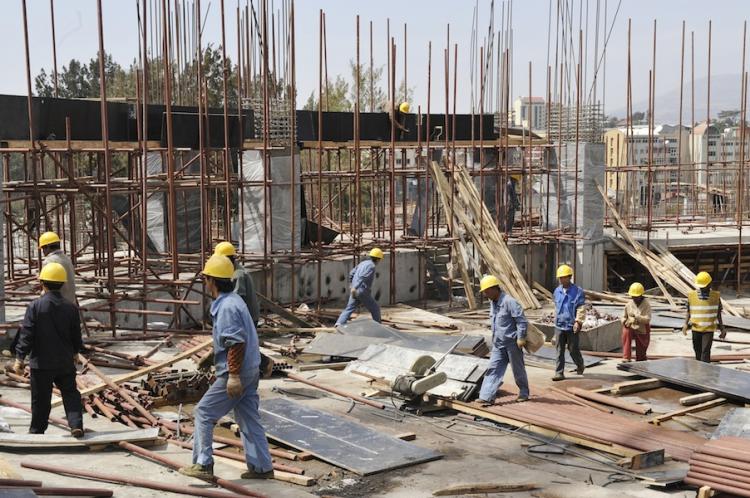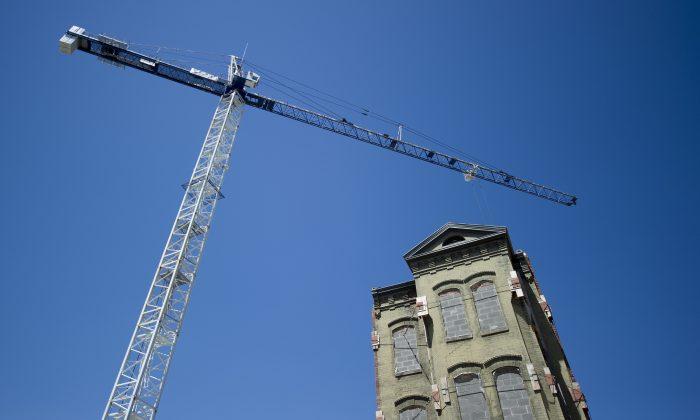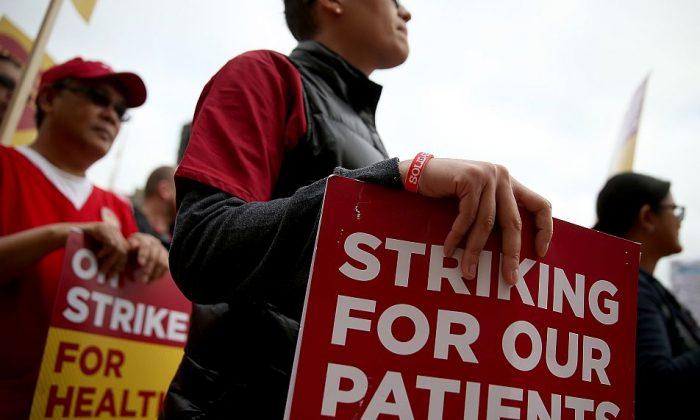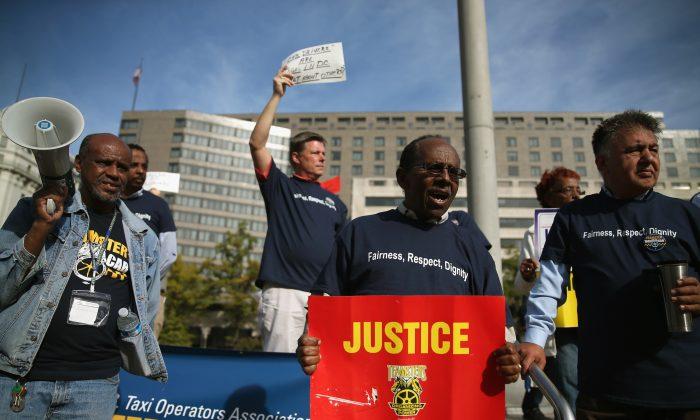Africa has weathered the global financial meltdown and economic downturn better than expected, according to economic experts.
According to a series of studies by management consulting firm McKinsey & Company, business opportunities should continue to grow in Africa. Its recommendation was based on the recently published 2010 African Economic Outlook (AEO) report by the United Nations and a branch of the Organization for Economic Co-operation and Development (OECD).
As a whole, Africa is expected to see GDP growth of 4.5 percent for 2010 and 5.2 percent for 2011, according to the AEO report.
“The recovery will also be uneven across the continent. While all African regions and almost all African countries are expected to achieve higher growth, the recession will leave its mark,” according to the AEO report.
Foreign direct investment (FDI) before the 2008 financial upheaval reached $88 billion, increasing in 2008 by 27 percent over the prior year. No recent actual figures are available, but preliminary figures indicate that FDI plunged by 36 percent in 2009.
The majority of FDI was earmarked for resource-rich countries Nigeria (oil and natural gas) and South Africa (gold, diamonds, platinum, and other metals).
With the discovery of more oil fields, West Africa’s Ghana and Guinea joined Nigeria in bringing in FDI to the region.
Sovereign wealth funds, especially Libya’s, which has more than $5 billion in capital, have invested heavily in African enterprises.
“As ever, the most attractive countries for investment tend to hold significant natural resource endowments, active privatization programs, liberalized FDI policies and vigorous investment promotion activities,” stated the AEO report.
China’s Role in Africa
“The debate over China’s role in Africa continues to rage. One side contends that China is a rapacious neocolonial oppressor, while the other sees it as a miraculous alternative to decades of failed Western aid,” according to a McKinsey Quarterly report.
McKinsey claims that China has gained a foothold in nearly all African countries that have not recognized Taiwan as an independent country from China.
Quoting the Chinese Ministry of Commerce, McKinsey claimed that there were around 1,000 Chinese businesses in Africa’s trade, transportation, infrastructure, and agricultural sectors.
Many of the projects are ad hoc and arise out of promises made by Chinese leaders during state visits in different African countries. Those projects do not benefit local employment, as Chinese workers are brought in to do the work, according to a recently published McKinsey interview with Kgalema Motlanthe, deputy president of South Africa.
“We’ve got to compare notes and perhaps interact with China bilaterally but also collectively. That way I think we can ameliorate the chances of most of the African countries being completely outsmarted [by the Chinese],” Motlanthe said.
Motlanthe, to stress his point, gave an example.
Angola needed its railway transportation system repaired, which was partially destroyed during internal strife. China agreed to give a $2 billion loan with one caveat—it would provide 70 percent of the workforce, who would not return to China once the project was completed, but be employed in other infrastructure projects within Angola.
Then, the project called for a 7-day workweek, which the Angolan nationals rejected. The Chinese then replaced the rest of the Angolan workers with Chinese workers. So, in reality, the project was completed by Chinese nationals.
Another McKinsey article claims that China established agricultural coaching centers. “To date, however, these centers often operate in a vacuum, poorly connected to the recipient countries’ national programs and with limited outreach to local farmers and slim chances of scaling up nationally.”
World Bank Weighs In
“For the first time a Sub-Saharan African economy, Rwanda led the [developing economies in the] world in ‘Doing Business’ reforms,” according to the recently released World Bank “Doing Business 2010” report.
Rwanda was selected to be among the top 10 reformers over the past two years due to enacting laws that removed obstacles to starting a business, protecting investors, and easing cross-border trading. Kenya ranked fourth when it comes to obtaining a loan.
On the other hand, “Rwanda ranks dead last in terms of the time and cost of liquidating a business, and securing a construction permit is so complex in Tanzania (ranked 178th) that it takes 32 steps and 328 days—and at a cost approximately 33 times per capita income,” according to a recent East African Business Council statement.
Sub-Saharan Africa was accorded special mention as 37 percent out of 46 economies implemented reforms improving the business environment.
Barriers to Doing Business
Neither the AEO nor the McKinsey Quarterly touched on impediments to doing business in Africa. The reports did mention poor infrastructure throughout Africa. Regulatory policies, if in existence, are most of the time not enforced, and rule of law is not enacted, and if enacted, not enforced.
“Weak infrastructure and institutional policies of many of the countries in Africa are partly responsible for poor intra-African trade. For instance, only 29.7% of the African road network is paved. The continent’s railway network is also very poor,” revealed the AEO.
Besides infrastructure, stumbling blocks to a free flowing and efficient trade include lack of a financial and insurance system.
The East African Business Council calls for the elimination of infrastructure bottlenecks, non-tariff barriers, such as transit cargo fees, and unnecessary lengthy customs documentation.
The council points to Kenya and Tanzania as having the most trade barriers to doing business, which add to the cost of the product, preventing it from being sold at a reasonable price.
“Non-tariff barriers remain the biggest obstacles to free movement of goods in the region,” said Faustsin Mbundu, chairman of the East African Business Council.
The World Bank report suggests that corruption in the African region undermines any investments made. Corruption is rampant in Africa and kickbacks to government employees and the political establishment is common.
According to a series of studies by management consulting firm McKinsey & Company, business opportunities should continue to grow in Africa. Its recommendation was based on the recently published 2010 African Economic Outlook (AEO) report by the United Nations and a branch of the Organization for Economic Co-operation and Development (OECD).
As a whole, Africa is expected to see GDP growth of 4.5 percent for 2010 and 5.2 percent for 2011, according to the AEO report.
“The recovery will also be uneven across the continent. While all African regions and almost all African countries are expected to achieve higher growth, the recession will leave its mark,” according to the AEO report.
Foreign direct investment (FDI) before the 2008 financial upheaval reached $88 billion, increasing in 2008 by 27 percent over the prior year. No recent actual figures are available, but preliminary figures indicate that FDI plunged by 36 percent in 2009.
The majority of FDI was earmarked for resource-rich countries Nigeria (oil and natural gas) and South Africa (gold, diamonds, platinum, and other metals).
With the discovery of more oil fields, West Africa’s Ghana and Guinea joined Nigeria in bringing in FDI to the region.
Sovereign wealth funds, especially Libya’s, which has more than $5 billion in capital, have invested heavily in African enterprises.
“As ever, the most attractive countries for investment tend to hold significant natural resource endowments, active privatization programs, liberalized FDI policies and vigorous investment promotion activities,” stated the AEO report.
China’s Role in Africa
“The debate over China’s role in Africa continues to rage. One side contends that China is a rapacious neocolonial oppressor, while the other sees it as a miraculous alternative to decades of failed Western aid,” according to a McKinsey Quarterly report.
McKinsey claims that China has gained a foothold in nearly all African countries that have not recognized Taiwan as an independent country from China.
Quoting the Chinese Ministry of Commerce, McKinsey claimed that there were around 1,000 Chinese businesses in Africa’s trade, transportation, infrastructure, and agricultural sectors.
Many of the projects are ad hoc and arise out of promises made by Chinese leaders during state visits in different African countries. Those projects do not benefit local employment, as Chinese workers are brought in to do the work, according to a recently published McKinsey interview with Kgalema Motlanthe, deputy president of South Africa.
“We’ve got to compare notes and perhaps interact with China bilaterally but also collectively. That way I think we can ameliorate the chances of most of the African countries being completely outsmarted [by the Chinese],” Motlanthe said.
Motlanthe, to stress his point, gave an example.
Angola needed its railway transportation system repaired, which was partially destroyed during internal strife. China agreed to give a $2 billion loan with one caveat—it would provide 70 percent of the workforce, who would not return to China once the project was completed, but be employed in other infrastructure projects within Angola.
Then, the project called for a 7-day workweek, which the Angolan nationals rejected. The Chinese then replaced the rest of the Angolan workers with Chinese workers. So, in reality, the project was completed by Chinese nationals.
Another McKinsey article claims that China established agricultural coaching centers. “To date, however, these centers often operate in a vacuum, poorly connected to the recipient countries’ national programs and with limited outreach to local farmers and slim chances of scaling up nationally.”
World Bank Weighs In
“For the first time a Sub-Saharan African economy, Rwanda led the [developing economies in the] world in ‘Doing Business’ reforms,” according to the recently released World Bank “Doing Business 2010” report.
Rwanda was selected to be among the top 10 reformers over the past two years due to enacting laws that removed obstacles to starting a business, protecting investors, and easing cross-border trading. Kenya ranked fourth when it comes to obtaining a loan.
On the other hand, “Rwanda ranks dead last in terms of the time and cost of liquidating a business, and securing a construction permit is so complex in Tanzania (ranked 178th) that it takes 32 steps and 328 days—and at a cost approximately 33 times per capita income,” according to a recent East African Business Council statement.
Sub-Saharan Africa was accorded special mention as 37 percent out of 46 economies implemented reforms improving the business environment.
Barriers to Doing Business
Neither the AEO nor the McKinsey Quarterly touched on impediments to doing business in Africa. The reports did mention poor infrastructure throughout Africa. Regulatory policies, if in existence, are most of the time not enforced, and rule of law is not enacted, and if enacted, not enforced.
“Weak infrastructure and institutional policies of many of the countries in Africa are partly responsible for poor intra-African trade. For instance, only 29.7% of the African road network is paved. The continent’s railway network is also very poor,” revealed the AEO.
Besides infrastructure, stumbling blocks to a free flowing and efficient trade include lack of a financial and insurance system.
The East African Business Council calls for the elimination of infrastructure bottlenecks, non-tariff barriers, such as transit cargo fees, and unnecessary lengthy customs documentation.
The council points to Kenya and Tanzania as having the most trade barriers to doing business, which add to the cost of the product, preventing it from being sold at a reasonable price.
“Non-tariff barriers remain the biggest obstacles to free movement of goods in the region,” said Faustsin Mbundu, chairman of the East African Business Council.
The World Bank report suggests that corruption in the African region undermines any investments made. Corruption is rampant in Africa and kickbacks to government employees and the political establishment is common.







Friends Read Free